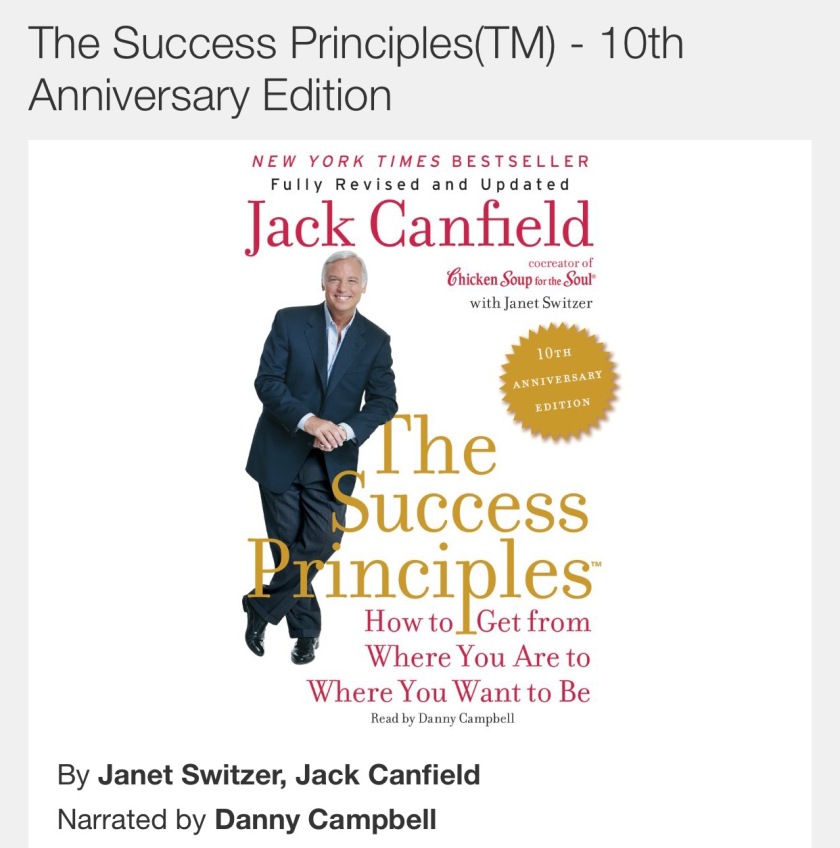
I heard this as I was listening to Success Principles by Jack Canfield last week. The context is when you want to develop a new habit in your routine, but can’t seem to stick to your commitment.
A perfect example many of us can relate to is working out.
At one point in time, I remembered being fed up with always being tired and lethargic. I knew I had to get my lazy butt off the couch and into a gym. But whenever I tried starting, I always found myself in the same cycle:
I would decide to go, work out 3-4 times that week, then get really sore. The next week, it would take all the willpower I had to push through the pain of the lactic acid buildup that make it hard to move. By the end of the week, I would give myself a few days rest as a reward. By week three, all of my willpower was used up and it became impossible to go to the gym.
A few months later, I would get fed up and start the cycle again.
I thought to myself, how can people make it seem so easy to go consistently? And I was having trouble keeping it going for a few weeks.
Eventually, I came across and read Power of Habit by Charles Duhigg.
While this book has tons of nuggets of wisdom, one key point was forming habits to reduce using our limited willpower. This way, we can make things like working out as automatic as showering, eating, and brushing our teeth.
I found that going to the gym 4-5 times a week consistently wasn’t too difficult at first. But since there were 2-3 days I could take off, there was always an internal struggle between whether or not I should go that day.
Eventually, I had a revelation: if I committed to going every day with the intent of integrating it into my daily habits, I wouldn’t have to conjure up and utilize my precious willpower.
I found that a 99% commitment is hard to keep. A 100% commitment, while not easy at first, is still extremely easier to keep.
Since the decision has already been made, I didn’t have to think about whether or not I was going to the gym. I would just go.
As a side note for those who are thinking, “shouldn’t you have rest days to let your body heal?” I still go to the gym daily, even on my “rest days.” But instead of a full workout, I’ll do something light like jogging a mile or some basic calisthenics. The idea is not breaking the habit. I know people who can commit 3-4 days per week successfully, so finding out what kind of schedule works for you is important.
After eight weeks of going to the gym basically every day (with the exception of being out of town for three days while on a trip to Phoenix), it now feels uncomfortable NOT going to the gym.
It’s like if you’re used to showering before you sleep every day, try not showering before you sleep and you’ll know what I mean. Or if you regularly eat breakfast at 7:30 AM before work, try going to work without eating. Your hunger pains is a physical manifestation of the discomfort.
I read somewhere that 90% of what we do every day is habitual. This frees up our mental energy for tasks that require more focus. With this idea in mind, I’m starting to develop some other daily, keystone habits like meditating, journaling, and playing 5-10 minutes of chess every day. That way I can benefit from these habits with minimal effort, while simultaneously being able to focus on bigger tasks.
Now, if only I can use this new insight to stop my habit of eating the free cookies at the bank 😓

Good read. Keep it up!
LikeLike
Definitely one of my most favorite books!!
Thank you for all of your reviews.
LikeLiked by 1 person
🙏🏼🙏🏼🙏🏼
LikeLike